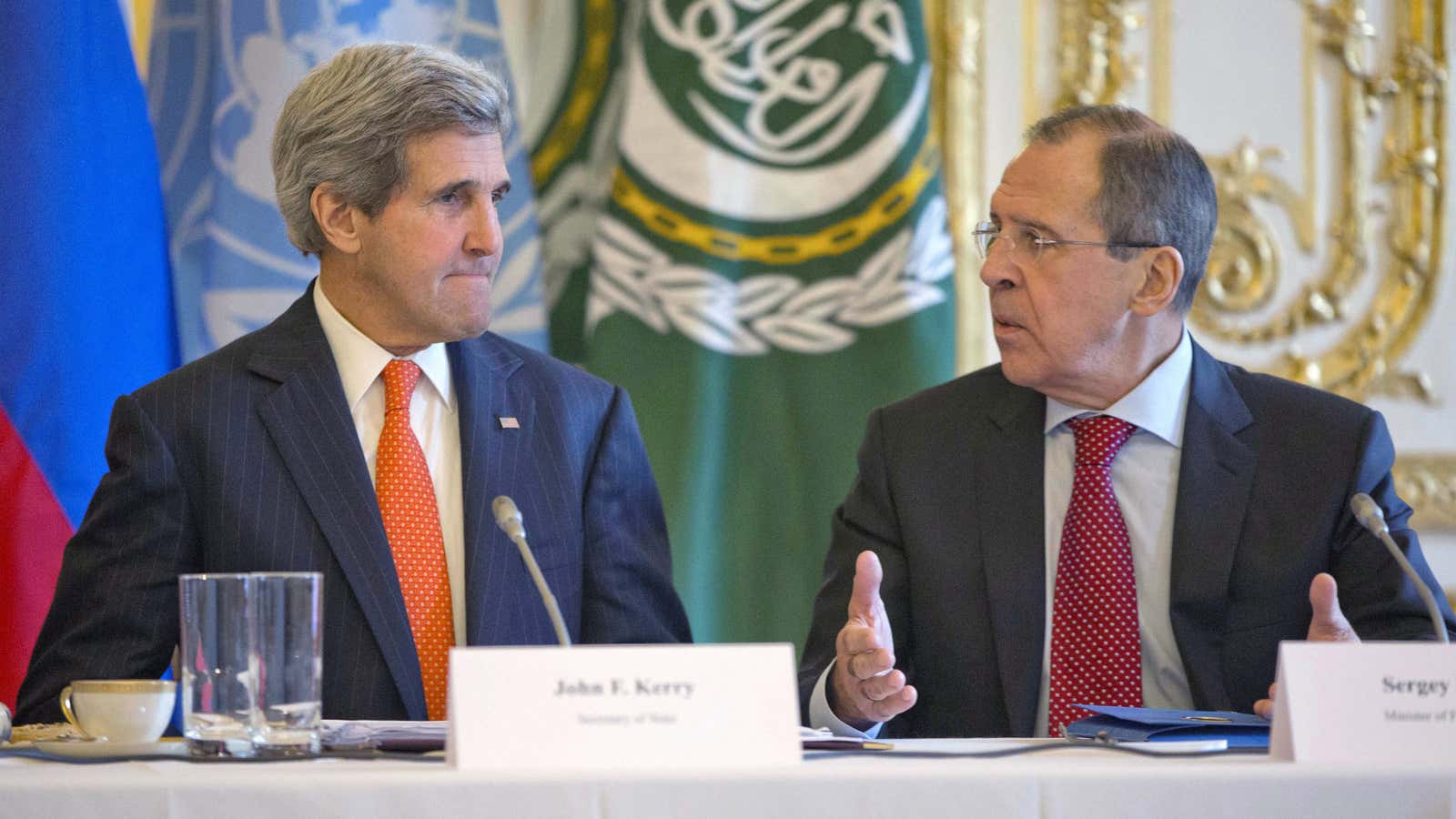Moscow privately denies a report that it is conducting barter negotiations that would increase Iranian crude oil exports by up to 50%, a source privy to US State Department communications has told Quartz. But if Russian president Vladimir Putin has in fact sanctioned such discussions, it is because of the attractions of a sweet deal and a chance yet again to flaunt his foreign policy independence.
The report—a Jan. 10 exclusive by Reuters—is taken seriously enough in Washington that US secretary of state John Kerry raised it with Russian foreign minister Sergei Lavrov. The idea is that Iran would ship as many as 500,000 barrels of oil a day to Russia, which would pay in the form of goods. The volume is eye-popping since Iran currently exports just 1 million barrels a day, one-third of its 2011 shipments, because of sanctions.
The Russian side denied the Reuters report to US officials, the source told Quartz. But the reason Kerry reacted so sharply was that it coincided almost precisely with a Jan. 12 final agreement by Iran and US-led negotiators to scale back Tehran’s nuclear enrichment program in exchange for some sanctions relief. The two sides agreed to activate that deal Jan. 20. If Iran could hike its oil shipments significantly, with Russia’s help, it would weaken other countries’ leverage for getting it to agree to a planned final and much more stringent agreement in six months.
“The Russians would be nuts to sign an agreement like this while talks for a long-term nuclear deal are going on,” Jeffrey Mankoff of the Center for Strategic and International Studies said in a phone call.
But the reported talks overlap with other matters about which Moscow is thinking as well. First and foremost is fulfilling a $270 billion supply agreement that Russia signed with China last June, promising 290,000 barrels of oil a day for 25 years. Much of the oil was supposed to be transshipped from Kazakhstan’s supergiant Kashagan oilfield, but Kashagan’s launch has been delayed at least until the end of this year because of a gas leak. That oil could come from Iran instead, and the surplus sold onto the global market—through Morgan Stanley’s oil trading desk, part of which Russia’s Rosneft bought last year.
“I’m sure Russia is getting a good discount on the oil, so why not [do the deal]?” Citi’s Seth Kleinman told Quartz. “Plus it’s a finger in Obama’s eye, which no doubt pleases Putin.”
